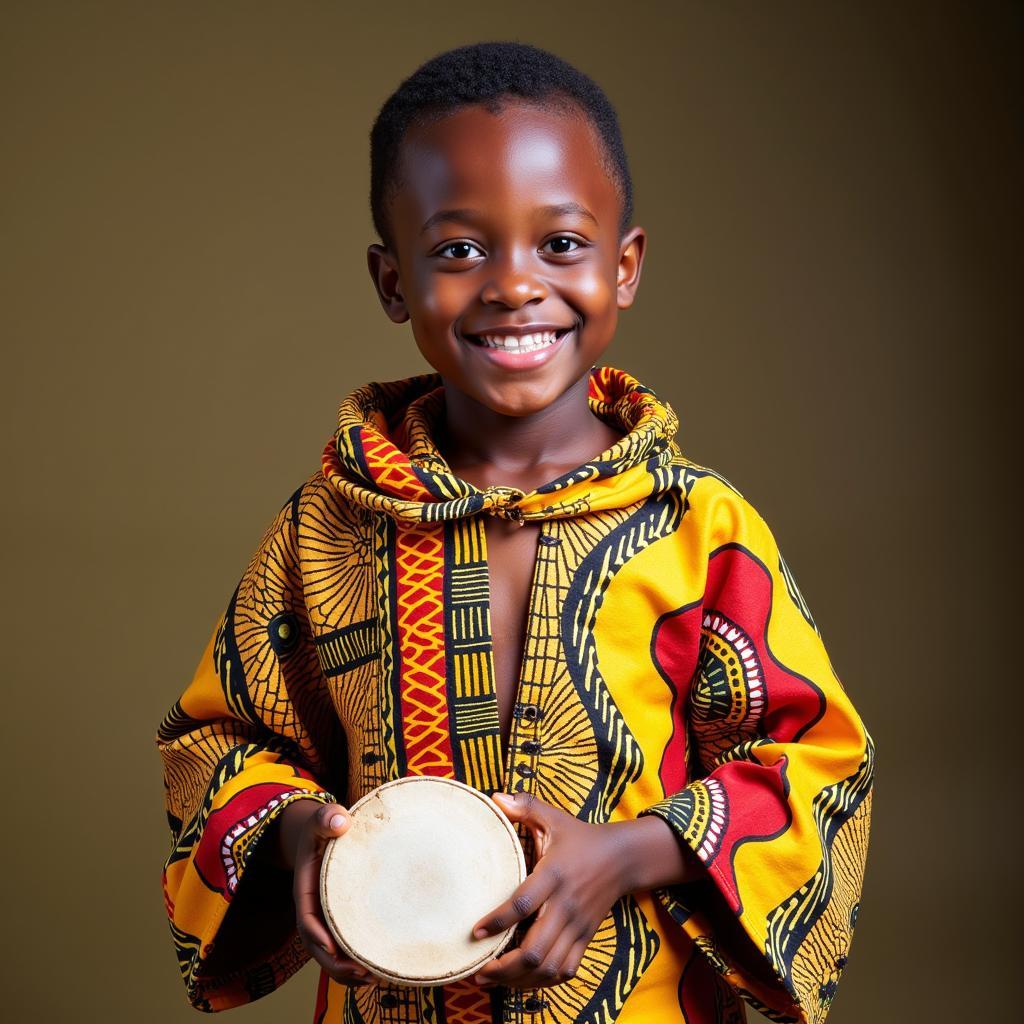10 African Words That Describe African Culture
Delving into the heart of African culture reveals a rich tapestry of traditions, values, and beliefs. Understanding this diverse continent requires more than just a cursory glance; it demands an exploration of its languages. This article unveils 10 African words that encapsulate the essence of African culture, offering a glimpse into its vibrant soul and providing valuable insights into the diverse customs and philosophies that shape the lives of millions across the continent.
Ubuntu: The Essence of Interconnectedness
Perhaps one of the most well-known African philosophical concepts, Ubuntu, originating from the Nguni Bantu languages of Southern Africa, encompasses the spirit of interconnectedness and shared humanity. It embodies the belief that “I am because we are,” emphasizing the importance of community, compassion, and respect for others. Ubuntu transcends individual differences, fostering a sense of belonging and shared responsibility for the well-being of all. This philosophy permeates many aspects of African Life, from social interactions to conflict resolution. It’s a cornerstone of African culture that emphasizes harmony and collective growth.
What does Ubuntu mean in practice? It can manifest in simple acts of kindness, community support during times of hardship, or the emphasis on consensus-building in decision-making processes. This philosophy of interconnectedness underpins many social structures and cultural practices across the continent.
Harambee: Pulling Together for a Common Goal
Harambee, a Swahili word meaning “pulling together,” highlights the spirit of collective effort and mutual support. It underscores the importance of community participation in achieving shared goals, whether it’s building a school, supporting a local initiative, or celebrating a cultural event. Harambee is not just about physical labor; it also encompasses the sharing of resources, knowledge, and skills. This principle of collective responsibility is deeply embedded in many African societies. It fosters a sense of unity and promotes sustainable development within communities.
Indaba: A Platform for Dialogue and Consensus
Derived from the Zulu language, Indaba refers to a traditional gathering or meeting where important matters are discussed and decisions are made through consensus. It emphasizes the importance of dialogue, listening, and respecting diverse perspectives. Indaba provides a platform for community members to voice their opinions and contribute to decision-making processes that affect their lives. This practice reflects the democratic values and participatory nature of many African societies.
Sankofa: Learning from the Past to Build the Future
Sankofa, an Akan word from Ghana, literally translates to “go back and get it.” It symbolizes the importance of learning from the past to inform the present and shape the future. The Sankofa bird, often depicted with its head turned backward while its feet face forward, serves as a powerful visual representation of this principle. It encourages reflection, remembrance, and the retrieval of valuable lessons from history to guide future actions and progress. You can find many African captions for Instagram related to this principle.
How does Sankofa manifest in African culture? It can be seen in the preservation of oral traditions, the reverence for ancestors, and the incorporation of historical knowledge into contemporary practices. This concept reminds us that the past is not simply something to be left behind, but rather a valuable resource to draw upon for guidance and wisdom.
Griot: The Keepers of History and Tradition
The term Griot, derived from the French language, refers to West African storytellers, musicians, and oral historians who play a crucial role in preserving and transmitting cultural knowledge, history, and traditions through generations. Griots are revered figures in their communities, serving as living libraries and guardians of cultural heritage. Their narratives, songs, and performances provide valuable insights into the past, offer moral guidance, and reinforce cultural identity. Some interesting parallels can be drawn between the role of Griots and the development of African American Vernacular English rules.
Djembe: The Heartbeat of African Music
The Djembe, a West African goblet drum, is more than just a musical instrument; it represents the rhythmic pulse of African music and dance. The Djembe’s vibrant sound often accompanies traditional ceremonies, celebrations, and storytelling. It symbolizes the power of music to bring people together, express emotions, and connect with the spiritual realm. The Djembe’s rhythmic patterns are often complex and intricate, reflecting the rich musical traditions of West Africa. Exploring the cultural significance of the Djembe can offer a deeper understanding of the role of music in African society. For those interested in the linguistic influences across continents, you might find the exploration of African French words quite fascinating.
Jollof: A Culinary Celebration of Community
Jollof rice, a popular West African dish, represents more than just a meal; it symbolizes community, celebration, and shared culinary heritage. This flavorful rice dish, prepared with various spices and ingredients, is often served at social gatherings, festivals, and family occasions. The variations in Jollof recipes across different West African countries reflect the diversity within the region while highlighting the common thread of culinary tradition that unites them. This delicious dish represents a taste of African hospitality and cultural exchange. For those intrigued by the interplay of cultures and geographies, an article on the African Gulf could be an insightful read.
Bogolanfini: A Textile Tradition of Storytelling
Bogolanfini, also known as mud cloth, is a traditional Malian textile dyed with fermented mud and plant extracts. The intricate patterns and symbols on Bogolanfini cloth often tell stories, convey proverbs, or represent cultural values. This textile tradition highlights the artistic creativity and craftsmanship of Malian artisans. Bogolanfini serves as a powerful symbol of cultural identity and artistic expression.
Ashe: The Power of Divine Energy
Ashe, a Yoruba word, refers to the divine life force or power that flows through all living things. It represents the spiritual energy that connects individuals to the divine realm and to one another. Ashe is invoked in prayers, rituals, and ceremonies, and it is believed to bring blessings, protection, and good fortune. This concept highlights the importance of spirituality and the interconnectedness of the physical and spiritual worlds in many African cultures.
Baraka: Blessings and Spiritual Grace
Baraka, an Arabic word commonly used in North Africa, signifies blessings, spiritual grace, and divine favor. It represents the positive energy that can flow through individuals, places, and objects. Baraka is often associated with saints, holy sites, and acts of piety. It highlights the importance of spirituality and the belief in divine intervention in many North African cultures. The use of the term “Baraka” showcases the cultural exchange and linguistic influences that have shaped North African societies. You might also appreciate exploring common African American expressions to understand the rich linguistic heritage.
Conclusion
These 10 African words offer a glimpse into the diverse and vibrant cultures of the African continent. By exploring the meaning and significance of these words, we gain a deeper appreciation for the values, beliefs, and traditions that shape the lives of millions across Africa. Understanding these words provides a richer understanding of the essence of African culture.
FAQ
- What is the meaning of Ubuntu?
- How does Harambee contribute to community development?
- What is the purpose of an Indaba?
- How does Sankofa encourage learning from the past?
- What is the role of a Griot in West African society?
- What is the significance of the Djembe drum?
- What does Jollof rice symbolize?
- What is Bogolanfini and its cultural significance?
- What is the meaning of Ashe in Yoruba culture?
- What does Baraka represent in North African cultures?
For further assistance, please contact us at Phone: +255768904061, Email: kaka.mag@gmail.com or visit us at Mbarali DC Mawindi, Kangaga, Tanzania. Our customer service team is available 24/7.



